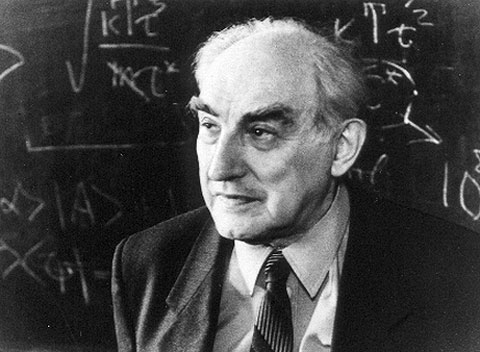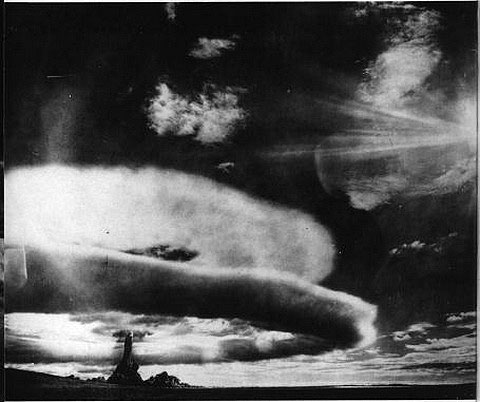The father of the Soviet fusion bomb died
Vitaly Ginzburg, the great Russian theoretical physicist, one of the scientists who developed thermonuclear bombs (Bomb H), passed away after a period of falling ill at age 93.
Ginzburg was born in Moscow on October 4, 1916 in a Jewish family. He only went to high school for four years and then worked as a technician for an X-ray laboratory at a local high school technical education institute.
From there, he began to love physics and in 1933 decided to go to Moscow University. Within nine years, Ginzburg obtained his doctorate in science and was admitted to the Lebedev Institute of the Soviet Academy of Sciences in 1942.

Portrait of Vitaly Ginzburg, as head of the theory department at the Lebedev Physics Institute, Moscow.
After World War II, Ginzburg returned to Lebedev to work in the academy's theory department. In 1948, he became a member of the development team of the Soviet thermonuclear bomb.
Ginzburg's main contribution is the suggestion of using lithium-6 as a nuclear fuel, an idea that gives the possibility of making thermonuclear bombs in practice. The creation of a thermonuclear bomb helped the Soviet Union have enough strength to become a counterbalance for US control during the Cold War.

The first Soviet 'real' thermonuclear bomb explosion in the RDS-37 test.Ginzburg has made a significant contribution to this success.
Although Ginzburg started out as an experimental physicist in the field of optics, he quickly realized his strength as theoretical physics and was involved in various areas of astrophysics.
In his life, he had a lot of research on the fields of physics such as superconducting theory, how electromagnetic waves pass through plasma matter, the origin of cosmic radiation and the characteristic of eliminating surface tension (superficial save) liquid helium.
Ginzburg was appointed as head of the theory department at Lebedev Institute from 1971 to 1988, when he retired. However, the following time, he continued to have weekly famous seminars that he had maintained since the 1950s.
In 1998, Ginzburg assumed the role of Editor-in-Chief of the Uspekhi Fizicheskikh Nauk scientific journal for the rest of his life.
As an atheist, he particularly objected to the promotion of creative theory (a theological theory) as the foundation of science. In an interview with physicsworld.com, he said: 'I am convinced that the future of humanity is related to scientific progress and I firmly believe that religions will one day turn to the stage is not higher than the position of astrology '. He also left a famous saying: 'If I believe in God, every morning I will wake up and pray: Thank you for giving birth to me as a theoretical physicist'.

Vitaly Ginzburg received the Nobel Prize for Physics in 2003.
With his studies, Ginzburg has won numerous awards such as the Soviet Prize in 1953, the Lenin Medal in 1966, the Lomonosov Gold Prize in 1995 and especially the 2003 Nobel Prize, jointly with Alexei scientists. Abrikosov and Anthony James Leggett in a work on superconductivity and super fluid.
- Father of the Soviet-Soviet atomic bomb
- Grid fusion synthesis power in 2050
- January 3: Confidential information about the creation of an atomic bomb stolen by the Soviet Union
- How to handle when you encounter a bomb explosion
- Fusion thermos are dozens of times faster than spacecraft
- The deadly ashes died from the first American thermonuclear bomb test
- What is fusion reaction?
- Differences between atomic bombs and fusion
- Learn the origin and meaning of Father's Day 2018
- The shocking truth about the 'father' of the atomic bomb
- American 'mother' is not as strong as the Russian 'father bomb'?
- The most powerful thermonuclear bombs in the world
 The most famous scientific failures in history
The most famous scientific failures in history Mysterious genius mechanic and the machine froze time
Mysterious genius mechanic and the machine froze time The son carries the 'bad gene' of genius Albert Einstein
The son carries the 'bad gene' of genius Albert Einstein Isaac Newton
Isaac Newton